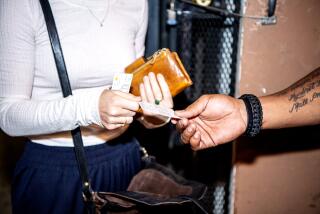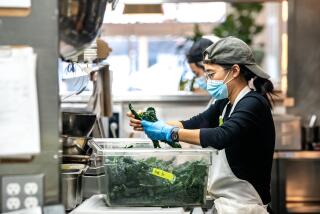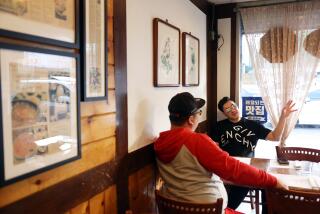As L.A. prepares to enforce vaccine mandate, businesses expect some unpleasantness
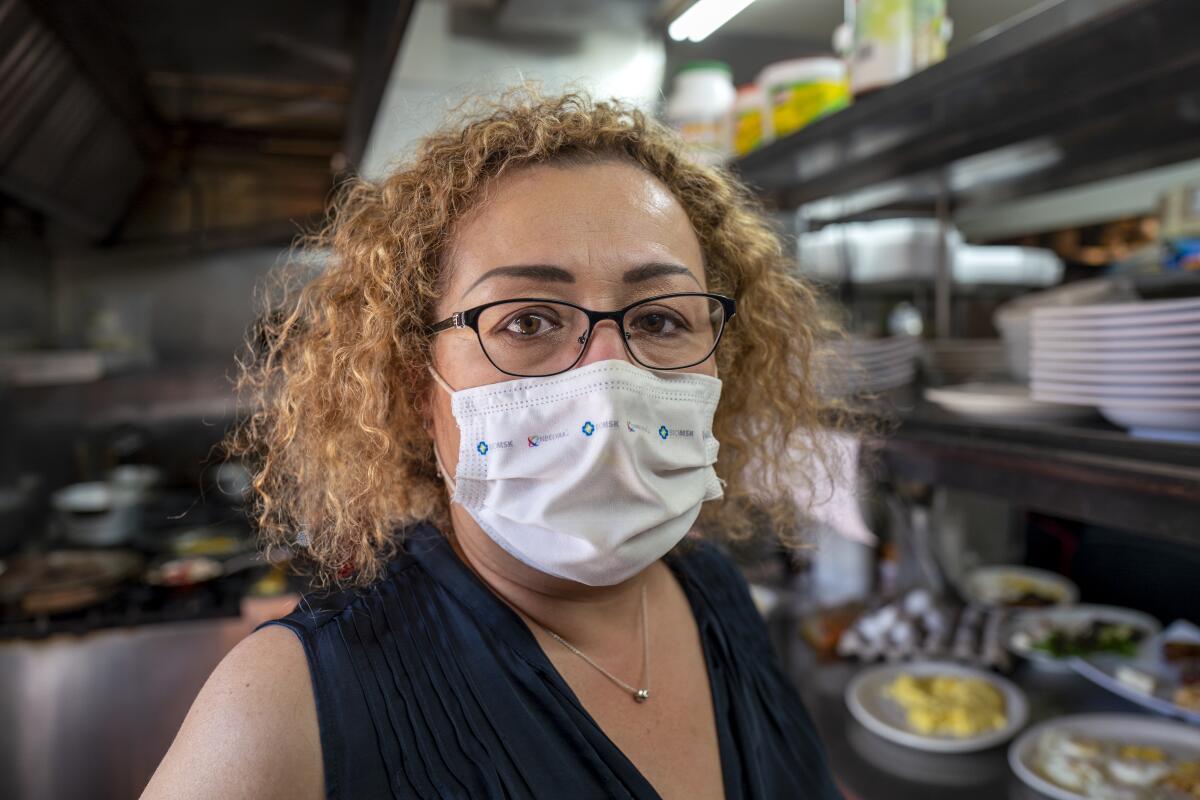
- Share via
Earlier this month, Milbet Del Cid used social media to put customers of her Guatemalan restaurant on alert. Soon, she would have to make sure they were vaccinated to let them in.
Almost immediately, the criticism poured in.
“If you’re obligated to ask,” one customer wrote in response, “then we won’t eat there anymore, so there.”
Come Monday, Los Angeles’ vaccine mandate will compel Del Cid to ask people for proof of vaccination. She can either enforce the law and deny some people entry into her restaurant or she can violate it, which Del Cid said she won’t do.
Either way, it won’t be fun.
“If I don’t let customers eat,” she said, “who’s going to lose that business? Me.”
But the stakes are too high for Del Cid to back down: Latinos have been infected and killed by the coronavirus in numbers above most any other group. And most of her customers are Latino.
At her Amalia’s Restaurant on the edge of Koreatown, Del Cid has repeatedly tried to debunk false claims about the vaccine. She said one woman told her it contained a microchip, men have said it caused fertility problems, and some religious customers even tried to link it to the “mark of the beast.”
“People are wrongly informed,” she said. “I’m afraid a lot of Latinos aren’t vaccinated.”
The Latino community, which makes up almost half of Los Angeles, faced large losses in employment and wages in the wake of the pandemic. And now, medical misinformation is spreading on social media and is contributing to relatively low vaccination rates among Latinos.
“I want to say 95% of my customers are Latinos and 80% of them are Guatemalans,” she said. “I’d say maybe 50% of them are not vaccinated, based on my interactions.”
Every day she said she hears vaccine falsehoods from customers. At least two members of her family refused to get vaccinated because they succumbed to conspiracies. Two weeks ago, one of them contracted COVID-19 and was intubated after their health deteriorated. She said that incident led the other family member to get vaccinated.
Del Cid shares her family’s story with customers as a warning about the consequences of conspiracies and remaining unvaccinated.
“But they don’t care,” she said.
She said customers have threatened to go elsewhere and have bragged about other restaurants that they say will not ask for vaccination proof. She has told them that the law will apply to every restaurant in L.A.
City and health officials hope the new ordinance will help reduce the risk of coronavirus spreading in higher-risk areas. The new vaccine verification mandate, one of the strictest in the country, applies to indoor facilities such as coffee shops, museums, theaters and other spaces.
Enforcement of the city program, dubbed SafePassLA, will begin Monday. Businesses or venues in violation will face penalties — at first a warning, then an escalating series of fines starting at $1,000 and topping out at $5,000 for a fourth or subsequent violation.
Del Cid said she supports the mandate but worries that with the spread of misinformation and so many Latinos not getting vaccinated, she and other Latino business owners will feel the effect of the law more than others.
“I have to be ... the bodyguard for the city,” she said. “At the end of the day, we’re doing their job. If I don’t let people in, I don’t have customers and if I don’t have customers that means I don’t have a business. And the rent, I have to keep paying. The permits, I have to keep paying.”
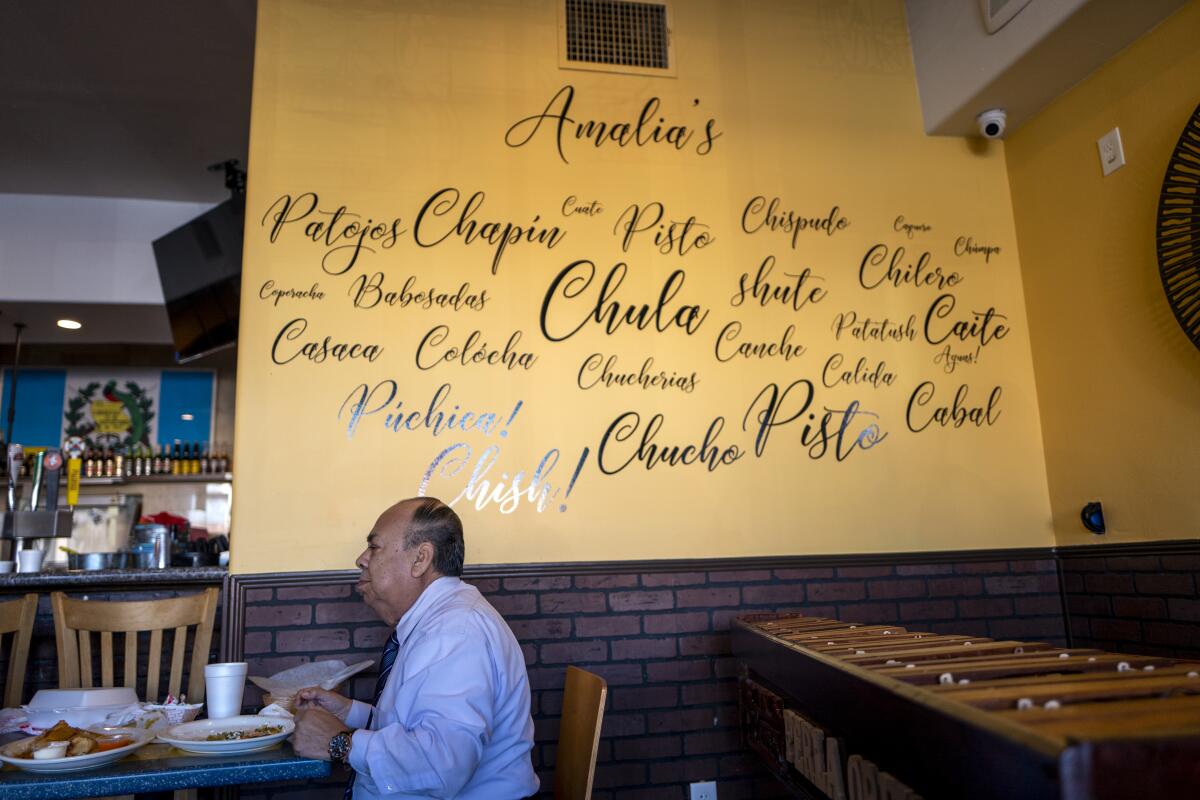
Almost every table inside Amalia’s Restaurant was filled with couples and families on a recent late Sunday morning.
Sitting near the bar, alongside a yellow wall with Guatemalan slang words, Isaias Valle, a longtime customer, sat alone eating a tostada. A plate with two chuchitos — small tamales — sat near a takeout foam box.
The 79-year-old said he was in favor of the new city ordinance requiring people to show proof of vaccination before dining indoors.
“I think we, Latinos, need to try and protect each other,” he said. “If there’s a vaccine out there then why not get it?”
Valle said he is fully vaccinated. So are his family and friends. He said he is planning on getting the booster shot soon. He was saddened by the thought of people who did not get vaccinated and died.
“It’s very hurtful for me that my own people are dying,” he said. “It brings pain and sadness to families.”
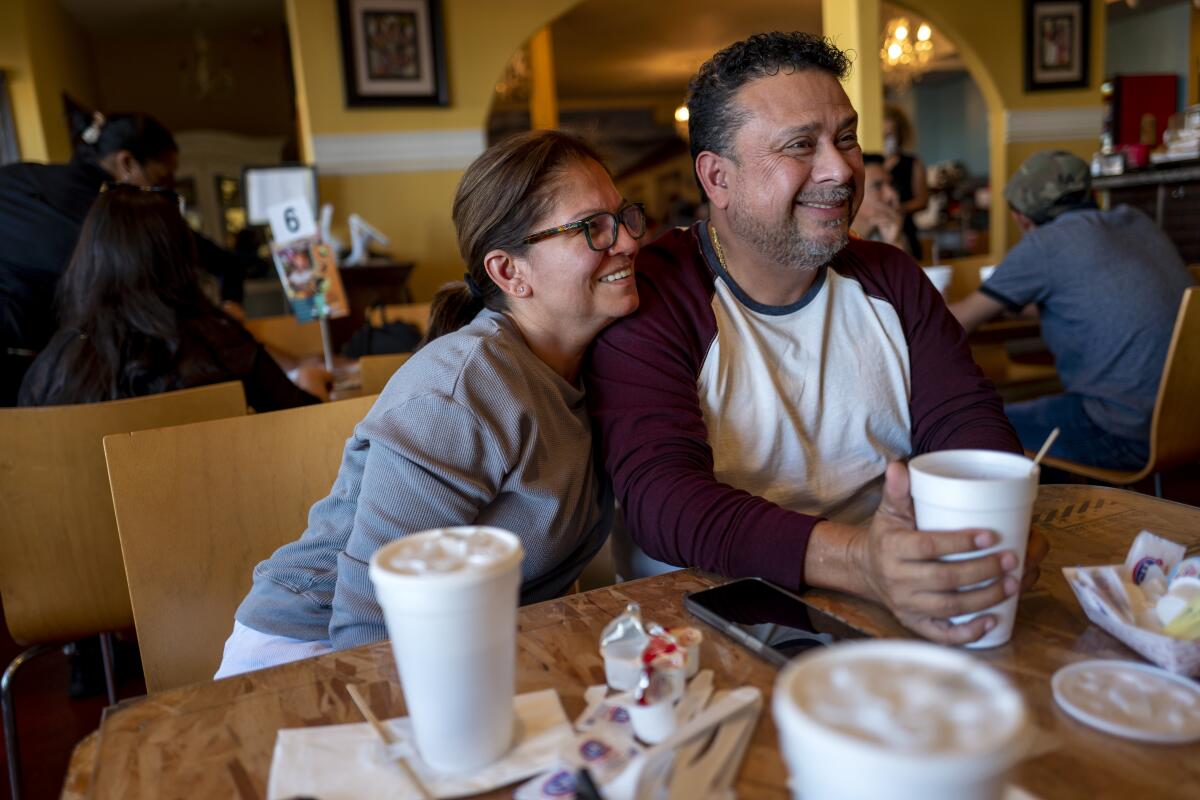
At a nearby table, Boris Mellado, 50, his wife, Mardy, 47, and his mother-in-law, Berta Mendez, 71, watched a marimba band set up for a live performance. They sipped coffee and waited for their breakfast, confident in their vaccinated status.
“It’s great,” Mendez said of the vaccine mandate. “It’s good to know the person that’s sitting across from you is vaccinated.”
“Exactly,” her daughter chimed in. “You walk in feeling a sense of security and confidence knowing that the infection risk is lower. It’s also good for your own mental health.”
“But you have to also consider that some businesses will lose money because of it,” Boris Mellado added.
“Well, some people just don’t want to get vaccinated,” Mendez responded.
“Well, let’s put that aside for now. What I mean is, if I come in here wanting to spend $30 but for whatever reason I don’t have my proof, the business just lost $30,” Boris Mellado said. “It’s a double-edged sword.”
In the background, a drummer, double bass player and three marimba players started to perform. Everyone took out phones to record videos. Waitresses made their way through a maze of tables, delivering drinks and food.
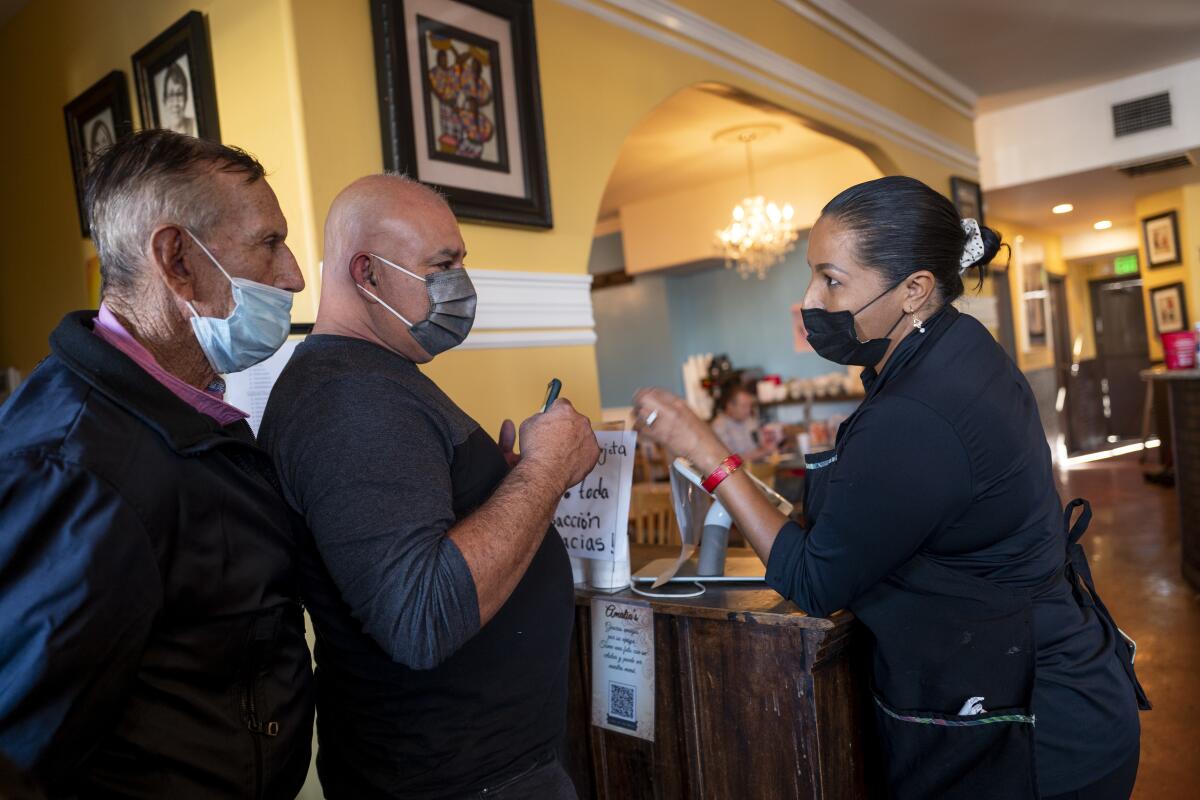
At the front, Paola Morataya, 39, requested proof of vaccination from customers before taking their orders. After they paid, she assigned a table to them where they could sit and watch the marimba orchestra play.
It was nearly 1 p.m. when Manuel Bonillas, 55, and his wife, Mirna Bonillas, 52, walked in. When Morataya asked for their proof of vaccination, Mirna Bonillas took out her hard copy. But her husband, Manuel, a construction worker, scrolled in frustration through dozens of photos on his phone. He told the host he was vaccinated but couldn’t find the photo of his vaccination card.
Morataya gave him a warning that she would allow him to sit and dine this time. But soon, she would have to give a different answer if he showed up without proof of vaccination: A hard “no.”
At the table, sipping coffee, Manuel Bonillas said he’s always afraid of carrying his hard copy because he fears losing it or ripping it.
“I have it here somewhere,” he said, unlocking his phone and scrolling through the photos again. “This is going to be a pain in the ass.”
“But I’m very much in support of this,” he quickly added.
More to Read
Sign up for Essential California
The most important California stories and recommendations in your inbox every morning.
You may occasionally receive promotional content from the Los Angeles Times.

